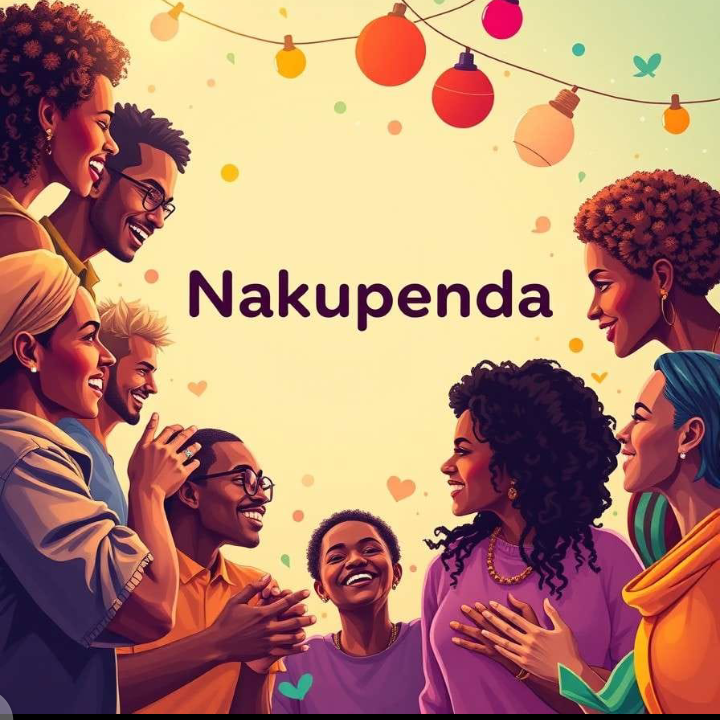A Barrow Pusher Became Rich After Public Insults and Abandonment
Episode 1
The sun was merciless that afternoon, pouring its heat down like punishment on the busy streets of Onitsha. Chijioke’s skin was browned from years of exposure, his hands calloused from pushing his barrow through tight markets and uphill roads. He had just finished delivering a load of yams to a woman in Ose Market and was making his way back, tired but hopeful. Business had been rough, but today, he had made a little more than usual. It was enough to buy garri, sugar and a little amount to send to his mother in the village.
As he paused by a roadside kiosk to buy pure water, he heard a voice he hadn’t heard in years — sharp, familiar, and once dear.
“Is that not Chijioke?” the voice echoed.
He turned, and his heart thudded. Ada. Beautiful, proud Ada. The same Ada he had once given his heart to in their village school. Now she stood radiant in makeup and fancy clothes, flanked by two other girls.
He smiled awkwardly, lifting his hand in greeting. “Ada, long time—”
She cut him off with a mocking laugh. “Chijioke! You still dey push barrow? Haba! Na wa o. Look at your mates! They drive cars, they wear suits. And you?” Her friends burst into laughter. One even took out her phone to snap a picture.
A small crowd began to gather. Traders stopped. Bus conductors paused their chants. People stared. Chijioke’s heart sank. He felt like the ground should open and swallow him.
“I used to like you before,” Ada continued, “but now I thank God I said no to you. See your life!”
He stood rooted, too stunned to speak. The bottle of water slipped from his hand. His eyes burned with unshed tears, but he wouldn’t let them fall. Instead, he picked up his barrow slowly, nodded once, and pushed it forward. Each step felt like a hundred lashes to his pride. People whispered, others laughed, some just watched. It was the longest walk of his life.
By the time he reached the edge of the market, his legs were shaking. He veered off the main road, found a quiet spot behind an abandoned shop, and sat on a broken cement slab. For the first time in years, he let the tears come. He cried for his dreams, for his shame, for his father who had died too soon, for the mother whose body was fading from sickness. He cried for being mocked, for being poor, for being helpless.
But somewhere in the middle of the tears, a thought began to grow. What if this was not the end? What if her insult was a mirror showing him who he’d become — and who he could still be? The pain turned into fire. A quiet vow formed in his heart: They will never laugh at me like this again.
#worldwide
#africanfolktales
#Discipline
#nakupenda A Barrow Pusher Became Rich After Public Insults and Abandonment
Episode 1
The sun was merciless that afternoon, pouring its heat down like punishment on the busy streets of Onitsha. Chijioke’s skin was browned from years of exposure, his hands calloused from pushing his barrow through tight markets and uphill roads. He had just finished delivering a load of yams to a woman in Ose Market and was making his way back, tired but hopeful. Business had been rough, but today, he had made a little more than usual. It was enough to buy garri, sugar and a little amount to send to his mother in the village.
As he paused by a roadside kiosk to buy pure water, he heard a voice he hadn’t heard in years — sharp, familiar, and once dear.
“Is that not Chijioke?” the voice echoed.
He turned, and his heart thudded. Ada. Beautiful, proud Ada. The same Ada he had once given his heart to in their village school. Now she stood radiant in makeup and fancy clothes, flanked by two other girls.
He smiled awkwardly, lifting his hand in greeting. “Ada, long time—”
She cut him off with a mocking laugh. “Chijioke! You still dey push barrow? Haba! Na wa o. Look at your mates! They drive cars, they wear suits. And you?” Her friends burst into laughter. One even took out her phone to snap a picture.
A small crowd began to gather. Traders stopped. Bus conductors paused their chants. People stared. Chijioke’s heart sank. He felt like the ground should open and swallow him.
“I used to like you before,” Ada continued, “but now I thank God I said no to you. See your life!”
He stood rooted, too stunned to speak. The bottle of water slipped from his hand. His eyes burned with unshed tears, but he wouldn’t let them fall. Instead, he picked up his barrow slowly, nodded once, and pushed it forward. Each step felt like a hundred lashes to his pride. People whispered, others laughed, some just watched. It was the longest walk of his life.
By the time he reached the edge of the market, his legs were shaking. He veered off the main road, found a quiet spot behind an abandoned shop, and sat on a broken cement slab. For the first time in years, he let the tears come. He cried for his dreams, for his shame, for his father who had died too soon, for the mother whose body was fading from sickness. He cried for being mocked, for being poor, for being helpless.
But somewhere in the middle of the tears, a thought began to grow. What if this was not the end? What if her insult was a mirror showing him who he’d become — and who he could still be? The pain turned into fire. A quiet vow formed in his heart: They will never laugh at me like this again.
#worldwide
#africanfolktales
#Discipline
#nakupenda













